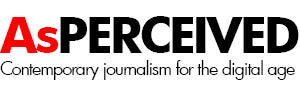FIRST POSTED: March 16, 2007
CHARITY is a word that’s either over-used or misunderstood in the UK these days.
Today is ‘Red Nose Day’, the culmination of a fund-raising campaign by an organization called Comic Relief heavily supported by BBC radio and television airtime.
While doing silly stunts to try to persuade one’s family, friends, neighbours and colleagues to dig into their pockets for a ‘good cause’, it’s worth stopping a moment to consider what is actually going on.
While most ‘charities’ in the UK do still carry out work which falls under ‘heads of charity’ defined more than a century ago, the majority are also businesses.
Those ‘heads’ refer to such tasks as education and the relief of poverty, distress and suffering.
Paid staff
That’s fair enough, but the ‘voluntary sector’ is far from voluntary. The only way to provide quality services is by hiring qualified paid-staff, staff who are contracted to work in specific times and places in return for remuneration, at rates which are commercially competitive.
These organisations are limited companies. They are contractors, companies hired by government – at whatever level – to provide services for vulnerable groups of people.
Most of their income comes from such contracts. Not so long ago, these organisations would get grants to do their good work. Now, these firms have service agreements and arrangements, obliging them to guarantee the quality and quantity of their provision in particular areas.
Some directors may give their time, but decision-makers such as chief executive and chief financial officers are likely to be paid … quite reasonable salaries.
Such organisations cannot make profits, or pay dividends to shareholders, but they have to build reserves which allow them to meet salaries. The scope for abuse, through bonus payments to key staff members, has increased greatly.
Both worlds
Many of these organisations want the best of both worlds. They try to bully sole traders and others they perceive as commercially weak into giving time and products because they are ‘charities’, yet they pay going rates for electricity, premises, print, phones and recruitment without stopping to think.
Schemes such as Comic Relief provide only short-term funding, money which the agencies get used to and then have to try to replace, 36 months from now, with state sources unlikely to pick up the bill then.
And, for every organisation which gets cash, many others will have invested time in developing bids, time that will not be paid for.
The bureaucracy doesn’t stop when the cheque arrives; organisations have to provide detailed reports and account for the money under the UK’s complex charity laws.
Charities may be grinning as they count the extra cash today, but they should be embarrassed about misleading the public and perpetuating myths about their operations.
Those contributing may feel good tonight, but the amount of energy and effort that will have been expended for every pound that’s raised will be disproportionately inefficient.
Today is not, in all honesty, a day to be proud of; it’s insidious exploitation, revelling in the depravity of the deprived. Those involved should be red-faced, rather than red-nosed.

